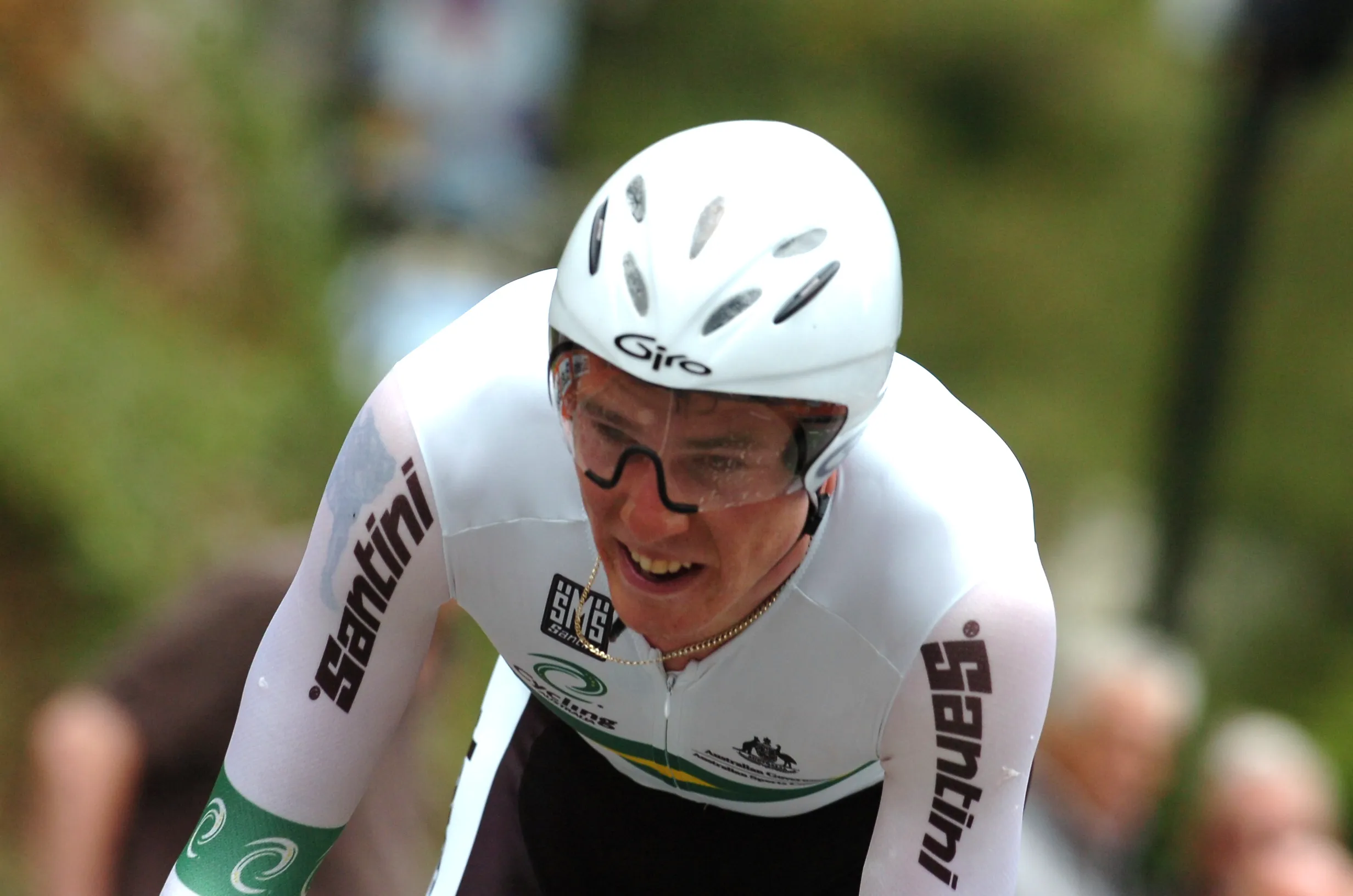Thanks to close friend Gesink, Dutch cyclist Bol got fitting farewell to cycling on other side of the world
CyclingWednesday, 11 December 2024 at 14:02
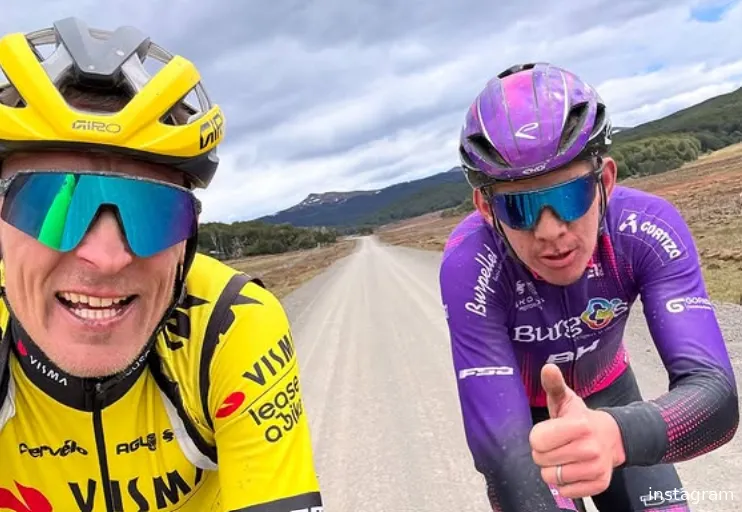
It’s mid-December, a time when many recently retired pro cyclists are gradually easing out of their training routines. After long careers, it’s not healthy for their muscles or hearts to abruptly stop cycling, so each rider finds their own way to transition. Few, however, will have as memorable a farewell as the December trip shared by recently retired Dutchmen Robert Gesink and Jetse Bol. Here’s a closer look at Bol’s career as it comes to a close.
Bol was born on September 8, 1989, in Avenshorn, North Holland, a province in the Netherlands. His name first appeared on the radar of serious cycling fans in 2005 when he became the Dutch national time trial champion in the novice category. Over the following seasons, Bol’s talent continued to shine: in 2006, he took second place in the junior national time trial championships, and by 2007, his consistent performances had caught the attention of Rabobank.
He joined Rabobank’s Continental team in 2008. In 2009, Bol won the prestigious Olympia’s Tour, a feat he repeated in 2011. After stints as a trainee in both 2010 and 2011, he earned a spot on the senior Rabobank team in 2012. However, that same year, the team was rocked by the infamous doping scandals of its past, and by 2013 and 2014, Bol and his teammates were riding under the Belkin name.
“I signed my first professional contract back then. I was surrounded by riders like Tom Dumoulin, Lars Boom, Tejay van Garderen, Jos van Emden and Dylan van Baarle. At one point, my development stalled. I mainly worked in Theo Bos’ sprint train. When Rabobank turned into Belkin and the team shrank from 30 to 26 riders, it became difficult,” Bol later reflected.
After Rabobank, Bol opts for adventures abroad
Despite a few decent results, particularly in 2013, Bol’s contract wasn’t renewed at the end of 2014. Several crashes had dampened his enjoyment of the sport. “I came close to quitting,” he admitted later. Instead, Bol dropped two levels down the ladder to join De Rijke. “That was tough. When I was younger, I won a lot of races at that level, but it wasn’t easy anymore. Mentally, it’s also challenging because you can’t just sit back and relax when you’re racing at a lower level.”
2014 was a year of changes for Bol in other ways as well. He and his Mexican girlfriend moved from the Netherlands to Girona, Spain, after living together in the Netherlands for two years. Bol credits this move with saving his career. “In the Netherlands, with those cold winters, I might have had days where I said ‘no’ to training. In Girona, there were so many strong riders to train with. If you go out with Robert Gesink, you know it’s going to be tough. My biggest challenge was getting back to my best level. I had to find a team willing to give me a second chance,” he said.
In 2015, Bol won Olympia’s Tour for the third time, earning him a second chance at the pro level with Colombian team Manzana Postobon in late 2016. “They gave me the benefit of the doubt because I lived in Spain and my wife is Mexican. During our talks, I just pretended to understand everything, saying, ‘Si, si, si, claro, claro.’ When I found out in 2016 that the team would sign me if they got a Pro Continental license, I started learning Spanish like crazy. My mother probably wishes I’d been that dedicated in school,” he joked.
Bol made the most of this opportunity, riding the Vuelta a España on behalf of the Colombian team in 2017. He stayed with the team for a year and a half before moving to Burgos-BH in mid-2018. “I owe a lot to Manzana Postobon, especially for helping me become a pro again, and I am also grateful for the transfer I could make to Burgos. In the end, I feel a bit more at home at Burgos. The team is more European, there is a bit more structure and knowledge of cycling. And the biggest advantage is that you have a race program that's more consistent," he told the Royal Dutch Cycling Union at the time.
Read more below the photo!
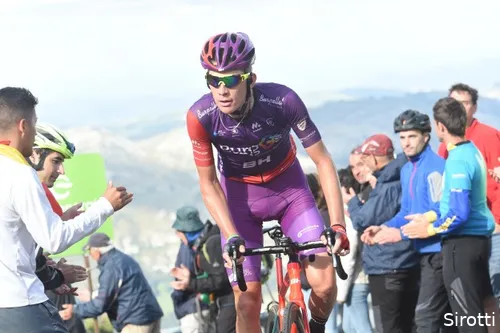
The Vuelta as a recurring team throughout Bol's career
At Burgos-BH, Bol immediately lined up for the Vuelta, and a good partnership was born. He became a regular in the major races the team entered, and in 2019, he came agonizingly close to a stage win in the Vuelta. Along with teammate Angel Madrazo and Cofidis rider José Herrada, Bol battled for the stage victory on a steep climb. Madrazo ultimately outsmarted Bol and took the day's win.
“We were two against one,” Bol recalled of that day. “Madrazo kept coming back, so I was supposed to finish it off. When he attacked again in the final kilometer, I hesitated for a split second about whether I should go with him. He would get the jersey, and I would’ve taken the stage. I should have attacked on that last climb, but I’m not a big winner. I didn’t have much experience to fall back on then. My teammate won, and I didn’t do anything wrong, but of course, I would’ve liked to win the stage myself.”
Ultimately, the Vuelta became a recurring theme in Bol’s career. He rode seven editions in total, from 2017 to 2023, including the 2022 Vuelta, which started in Utrecht in the Netherlands. “There was so much support from the fans, it was really cool to experience that. I’d only heard stories about Dutch grand tour starts before. To experience it myself was a childhood dream.” In 2024, his team, Burgos-BH, didn’t receive an invitation, meaning his final year wasn’t capped off with another appearance in the Spanish grand tour.
Read more below the photo!
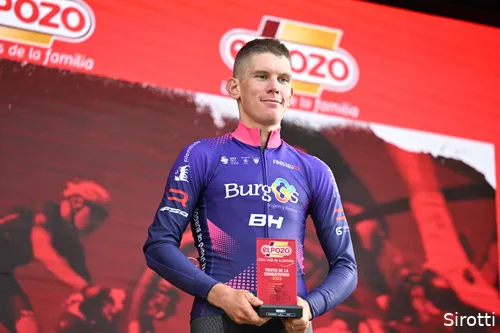
Bol retires but stays in cycling
At 35, Bol decided this season was the right time to retire. Starting next season, he’ll take on a new role as a sports director with — unsurprisingly — Burgos-BH. “After 17 years in the peloton, it’s time to hang up the bike. It’s been a journey of highs and lows, but I’m not saying goodbye to the sport yet,” he announced two months ago.
Clearly, Bol wasn’t ready to leave cycling completely. This was evident from his trip to Chile with friends Robert Gesink and Dennis van Winden, both also former pros. In early December, the trio took part in the Karukinka Gravel Race, where Bol even managed to win a stage — beating Gesink. On the other side of the world, the two friends wrapped up their careers with an unforgettable trip and new adventures.
Read also
IDL-productions
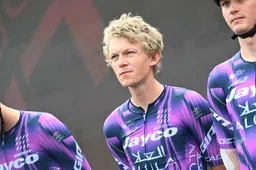
Bouwman not afraid to change at 32 after first disaster year outside of Visma: 'Have to be honest with myself'
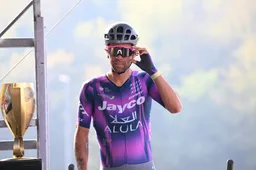
Sanremo, a world title and the yellow jersey: Michael Matthews escaped death - and that reignited his spark
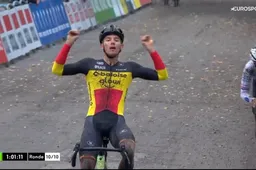
Unlike road colleagues Van der Poel or Van Aert, Nys rides twice as many cyclo-crosses: 'He doesn't want to ride only ten cyclo-crosses'
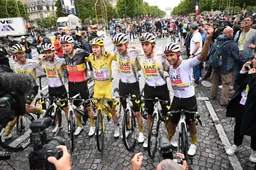
95 (or was it 97?) wins and a new record year, but losing that one race still hurts UAE Team Emirates - XRG

Former cyclocross world champion recalls wonderful memories of young Nys: "Back then we thought: that's not going to work out"
Latest Cycling News

Bouwman not afraid to change at 32 after first disaster year outside of Visma: 'Have to be honest with myself'
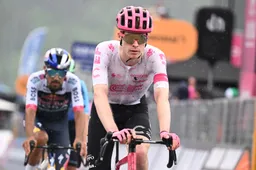
An invisible illness thwarted the year of Giro-revelation Steinhauser: 'It was bordering on depression'
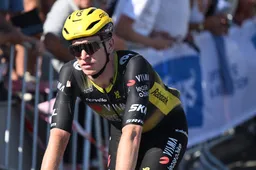
'you often think it’s just a cliché;' Affini will have his first Christmas as a father and is on cloud nine
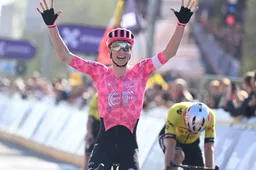
'Bull in a china shop' Powless extends at EF and reveals opportunistic goals for 2026
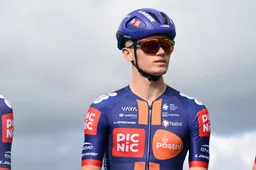
A massive transfer deep into December: Oscar Onley signs for INEOS Grenadiers after all
Popular Cycling News
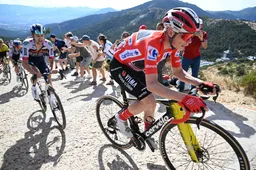
“I’m already saying too much," says mysterious Vingegaard with a smile, as he looks to continue his other side in 2025
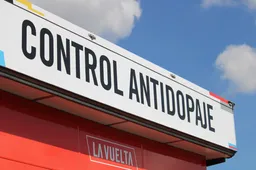
Not new doping variant with sea worms, but excessive drug use in peloton triggers warning

A massive transfer deep into December: Oscar Onley signs for INEOS Grenadiers after all
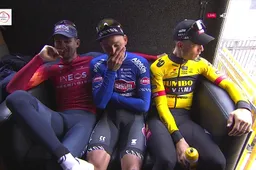
Pogacar and Van der Poel beware! Besides Ganna, Van Aert also writes visit to Italy on his calendar?

An invisible illness thwarted the year of Giro-revelation Steinhauser: 'It was bordering on depression'
Latest Comments
- Those events are mental rest for him. Fun, without expectations. *Sagan lost his abilities because he gained weight and got lazy. Pogi will likely retire before that has a chance at happening.Veganpotter14-12-2025
- Ah, the consequences of riding for Israel.Veganpotter11-12-2025
- Pidcock could follow everyone but Pogi while finishing 3rd. No second place rider this season😃Veganpotter16-11-2025
- Now the Palestinian protestors can stop their whining. Trump came to the rescue. So they can now STFU and go back to waving the rainbow flags.raufus15-10-2025
- Cracked the code lol. If it was that easy to 'crack the code' jonny Vegas would be charging up the Kwaremont giving Pog a dose of his medicine. Evenepoel can't match pog on a climb and neither can mvdp. Anything with a half difficult climb and Pog smashes the field. Even on flat(ish)parcours like Roubaix it came down to a mistake and crash by pog to definitively crown mvdp. MSR is the only one that Pog probably won't win.kevpt10-10-2025
- We've seen this movie before. I think Pogacar is doping.DeadBlow10-10-2025
- 👍Bea08-10-2025
- 👌🏻Bea08-10-2025
- What the data doesn't show is how much of an effect drafting had for evenepoel. Pogacar went with del toro at 100km whilst Evenepoel was still in the bunch. Despite the bike changes he still had a lot of assistance getting back to the bunch. Pogacar then rode 60km solo whilst evenepoel rode with Healy/Skjelmose until going solo in thd last 10-15km. Thats ~20% less power / energy requirements for 45-50km. Apples and oranges...kevpt30-09-2025
- 👏👏Bea24-09-2025
Loading

